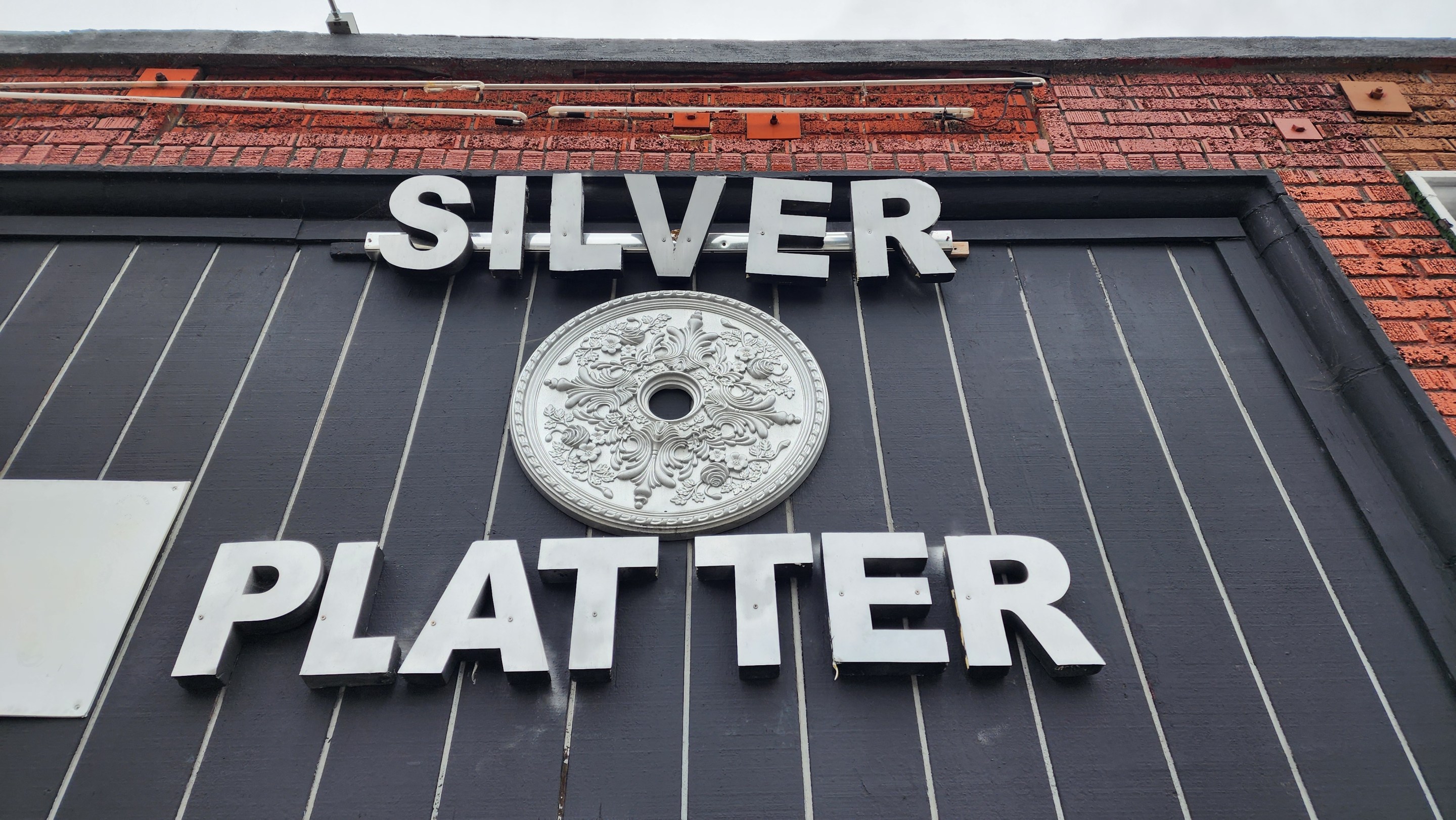Already facing imminent demolition, Silver Platter, Westlake’s oldest gay bar, recently had its liquor license suspended, forcing the business to close its doors. Now it’s looking even less likely that the 61-year-old watering hole will be saved. But preservationists and community members are still holding out hope that the city council can step in and do something.
On June 18, California Alcohol Beverage Control (ABC) suspended the Silver Platter’s liquor license for 30 days, according to online records from ABC.
“The short answer is that the Silver Platter is an ABC licensed business that unfortunately had multiple violations of their ABC license,” Los Angeles Police Department (LAPD) Captain James Roberts wrote in an email to L.A. TACO.
The bar’s beer and wine license was suspended for five different violations, LAPD Media Relations Division confirmed.
The alleged violations include knowingly permitting the sale of illegal drugs, allowing people to loiter outside and solicit drinks, as well as employees soliciting or accepting drinks.
Esotouric first reported that the Silver Platter’s liquor license was suspended and that the bar faces demolition.
Rhondaya Fishburne, spokesperson for Councilmember Eunisses Hernandez, told L.A. TACO in late June that the council member was “aware of the suspension of the Silver Platter's liquor license.” Fishburne directed us to the LAPD and ABC for further details on why the bar’s license was suspended.
In May, when asked about the possible demolition of the Silver Platter, Fishburne said that Councilmember Hernandez believes that it’s crucial to honor queer history, “and protect safe spaces for those community members.”
“This development project was approved prior to our time in office,” Fishburne explained. “However, our office is working with the Planning Department to identify what options are available to protect this important location.”
As it currently stands, an LLC associated with Roussin Capital Group—a family-owned business “formed to build and preserve wealth through real estate investing”—is planning to replace the Silver Platter and surrounding businesses (which include a church and travel agency), with a 55-unit apartment complex. Six units will be set aside for “extremely low-income” households, according to plans submitted to the city planning department.
News that the Silver Platter’s days were numbered came as a surprise to preservationists and to some of the queer and Latino community members who have enjoyed a cold beer under the hue of lights inside the Silver Platter.
Housed in a single-story brick building built in the 1920s on the edge of today’s rapidly developing neighborhoods of Koreatown and Westlake, the Silver Platter first opened in the early ‘60s and for decades has been known as a “safe haven” for the neighborhood's immigrant and queer communities.
The Silver Platter is one of the last remaining queer landmarks in Westlake, a neighborhood central to the gay rights movement in Los Angeles. The bar's front door is about a mile away from steps leading up to the former house of Morris Kight, a pioneer of the gay rights movement in Los Angeles. Last year, the city council designated the Morris Kight house a historic landmark.
Today, the future for Westlake’s oldest gay bar remains bleak.
There has been no change in the status of the demolition permit as of late last month, according to Fishburne, and it seems even more unlikely that the bar will be designated a historic resource.
“Unfortunately, under the Housing Crisis Act (HCA), City Council does not have the authority to alter the historic designation of a building or parcel once housing entitlements have been granted,” Fishburne explained. “This is the case with the current project.”
Fishburne emphasized that Council District 1 understands and shares the community’s concerns and that their office will continue to be in contact with the Office of Historic Resources and Department of Building and Safety “to obtain additional information and monitor the situation.”
However, not everyone agrees with the council office’s interpretation of the law.
Mike Callahan, a retired local engineer, preservationist, and freelance historian, argues in a recent newsletter, “From what I see, it’s not that the city can do nothing. It’s that city staff are not fully informed about the law.”
Developing a strong understanding of local housing laws can be daunting if you’re not a professional, Callahan admits, because many of our housing laws are intentionally “vague” or “unclear” and are left up to the courts to interpret.
In the case of the Silver Platter, Callahan says that an assessment of the bar’s historical significance only took its “physical appearance” into account rather than the cultural significance of the bar to the LGBTQ+ and Latino communities.
Callahan believes the city is zeroing in on one part of the law while ignoring other provisions. He cites a provision that allows the Cultural Heritage Commission “to stay demolition when new information is discovered that may affect the finding of a prior assessment report,” among other reasons why Councilmember Hernandez and the city could intervene in the matter.
Callahan breaks down his argument in great detail in his newsletter, ‘The Dusty Archive.’
“The intent of the law is to ensure that decisions that impact a potential historic resource are based on valid and complete information,” Callahan writes. “Once torn down, the resource is gone forever.”
Echoing Callahan’s argument, local preservationist Kim Cooper of Esotouric said it’s unclear what the council office’s intent is here.
“Maybe they don't know any better, maybe they do, we cannot judge intent,” Cooper told L.A. TACO. “But the reality is the Silver Platter can get a fair chance to survive… and if Eunisses steps up, that will happen!”







